|
Protect The First Foundation filed an amicus brief Wednesday in City of Austin, Texas, v. Reagan National Advertising, before the Supreme Court, showing that a city regulation forbidding “off-premise signs” violates the First Amendment.
Austin city code prohibits signs from displaying messages that advertise “a business, person, activity, goods, products, or services not located where the sign was installed.” A sign cannot even direct people to another location. Any such sign is designated “off-premise” and is forbidden. Although there is an exception for older, grandfathered signs, that protection is lost if the signs are changed or improved. “Austin’s sign code is inherently about the regulation of content,” said Gene Schaerr, Protect The 1st general counsel. “For that reason alone, it should be subject to – and fail – the strict scrutiny courts apply to First Amendment cases.” PT1 argues that the regulation restricts speech, including subjects that do not lend themselves to a premise-specific communication, whether it’s “Vote,” “Get Vaxxed,” or “Jesus Saves.” “Regulations that turn on the content of speech,” the PT1 brief declares, “are particularly troubling and prone to abuse, even where they are not overtly based on the viewpoint of the restricted speech. Often, a content restriction is merely a proxy for viewpoint discrimination. Other times it involves discrimination against topics, types of speech, or speakers. All of those forms of governmental discrimination offend the First Amendment.” And, PT1 argues, because Austin has not offered any reason why signs bearing off-premise content pose a greater threat to aesthetics and traffic safety than do signs bearing on-premise content, the city cannot justify its speech code. The ordinance is “underinclusive,” and thus unconstitutional. In 2018, the Becket Fund for Religious Liberty launched a podcast called “Stream of Conscience” to shed light on religious liberty in America. The podcast presents important cases in an engaging, conversational format.
Season Two kicked off this month. Host Katie Geary dives deeper the far-reaching implications of the rights of religion, as seen through the lens of two major elements of the Constitution: The Establishment and Free Exercise clauses. Other fundamental freedoms come into play as well, showing how freedom of speech and the right to property are deeply entwined with religious liberty. In the first episode, Geary and Becket Executive Director Montse Alvarado discuss the Religious Freedom Restoration Act, which was passed in 1993 with overwhelming bipartisan support that’s rarely, if ever, seen today. Episode two takes on the idea of separation of church and state – which, contrary to public opinion, is not part of the Establishment Clause of the Constitution. Protect The 1st filed a brief today in Ramirez v. Collier, a case the Supreme Court will hear this November. Its brief urges the Justices to recognize a robust interpretation of a law Congress designed—in the Court’s own words—to provide “expansive protection of religious liberty.”
In this case, John H. Ramirez, a convicted murderer in Texas, has requested that his pastor be allowed to lay hands on him and pray while he is executed by lethal injection. The laying on of hands is an ancient tradition, one that is held to transfer the power of absolution and benediction from God. Texas rejected his request because, in its words, a law protecting religious observances for the incarcerated does not mean that the state “must accede to his every religious demand.” Ramirez counters that Texas would have his pastor “stand in his little corner of the room like a potted plant” and that “if he even breathes through his mouth, the warden may declare that” the pastor is “trying to utter prohibited words of prayer.” The greater significance of this case revolves around the Religious Land Use and Institutionalized Persons Act (RLUIPA), a statute that defines religious exercise “capaciously,” backed by many court interpretations favoring broad religious protections. “Some lower courts, however, have failed to understand the clear message from Congress that we should give broad leeway when it comes to the free exercise of religion by the incarcerated,” said Gene Schaerr, Protect The 1st general counsel. “They’ve seized on one undefined term in the statute, ‘substantial burden,’ to find ways to undermine the intent of the law. “There is more at stake in Ramirez than just the issue at hand,” Schaerr said. “The Court has a rare opportunity to make it clear to lower courts that they should respect the expansive and generous interpretation of RLUIPA that Congress intended for all incarcerated people. “The Court should recognize that government can substantially burden religion in varied and ingenious ways. It should go without saying that making it impossible to observe one’s faith at the moment one is killed by the state is as substantial a burden as they come.” Schaerr pointed to reasons for optimism about the outcome of this case. In February, the Court declined to remove an injunction halting the execution of an Alabama man who was denied the opportunity to have his pastor at his side in the execution chamber. In that case, Justice Elena Kagan filed a concurring opinion, joined by Justice Stephen Breyer, Justice Sonia Sotomayor, and Justice Amy Coney Barrett explaining that state action barring religious exercise must pass heightened judicial scrutiny. PT1st’s amicus brief also notes that in 2014 then-Judge Neil Gorsuch wrote that when the government prevents the plaintiff from participating in [religious] activity, giving the plaintiff no “degree of choice in the matter,” then that “easily” imposes a substantial burden on religious exercise. Death by taxes? Not today: A Cincinnati tax that targeted two billboard companies was ruled unconstitutional by the Ohio Supreme Court.
The court permanently enjoined the city of Cincinnati last week from enforcing an excise tax on billboard advertising that it imposed on two companies in 2018. The billboard operators, Lamar Advantage GP Company and Norton Outdoor Advertising, successfully argued that the tax violates their rights to freedom of speech and a free press under the First Amendment. The struggle between commercial printed media and taxation in this country hails back to the reign of King George III. The Stamp Act of 1765 sought to replenish the British treasury after the empire’s victory over France in the Seven Years’ War. The act taxed newspapers, legal documents and printed materials – from wills to deeds, pamphlets, newspapers and posters. The Stamp Act proved to be an early failure. Taxes levied under the act pushed American colonists to the point of rebellion. A 21st century free speech crisis would have occurred in Cincinnati had the state supreme court not ruled the discriminatory tax unconstitutional. The city enacted the billboard-tax ordinance to raise revenue that would help address a $2.5 million budget deficit and claimed that the tax wasn’t meant to regulate or mitigate the effects of billboards. Lamar and Norton disagreed and filed suit in 2018, citing First Amendment violations. The Ohio Supreme Court ruled in favor of the plaintiffs, concluding that, “The basic premise of the First Amendment is that all present instruments of communication, as well as others that inventive genius may bring into being, shall be free from governmental censorship or prohibition.” Writing for the Supreme Court majority, Justice Sharon L. Kennedy stated that regardless of whether the city intended to censor the billboard messages or not, “a selective tax creates the intolerable potential of self-censorship by the press and abuse by governmental actors aimed to suppress, compel, or punish speech.” She added: “That the tax involves billboards rather than the institutional press is of no consequence.” The billboard companies’ rights as speakers and publishers are protected by the same free speech and press rights as other publishers, the court held. In an interesting side note, the court ruling included an observation that the city’s billboard tax resembles the type of taxes levied under the Stamp Act of 1765. The opinion included this nugget: “One scholar has explained, it was “‘quite likely that [the tax on] paper was more emphatically an immediate cause for the outbreak of the spirit of revolt than the insipid [tea] of which so much has been written.’” The Ohio Supreme Court’s ruling itself is a strong brew. Recent lines of thinking hold that non-profit groups, social media or radio shows might benefit from government regulation of content. The Ohio Supreme Court reminds us that regulation of all forms of communication “that inventive genius may bring into being” is squarely at odds with the First Amendment. Erik Jaffe, Protect The 1st Policy Director, joins a panel discussion at the CATO Institute looking ahead on what to expect in the Supreme Court’s October term. Among the topics: the case of Texas death row inmate John Ramirez, whose scheduled execution was halted by the U.S. Supreme Court over possible violations of his First Amendment right to the free exercise of religion.
The case of high school football coach Joe Kennedy is like one of those wild games with one turnover after another. For the second time, the U.S. Supreme Court will decide whether to hear his case.
A high school coach at Bremerton School District in Washington State, Kennedy had the habit of taking a knee on the 50-yard line of the field after every game. He did so not to make a political statement, but to engage in a few seconds of silent prayer. Kennedy was fired in 2015 for repeatedly violating an order by the school not to pray. This case came to be seen as the razor’s edge of legal theory to protect the First Amendment right to free exercise of religion. Prior Court opinions forbid organized prayer. But Kennedy prayed by himself outdoors, after his games. This case bounced around the courts for years. The firing of Kennedy was upheld by the Ninth Circuit Court of Appeals. Kennedy’s first petition before the Supreme Court was denied in 2019. Justice Samuel Alito noted that “denial of certiorari does not signify that the Court necessarily agrees with the decision.” He also wrote that “the Ninth Circuit’s understanding of the free speech rights of public school teachers is troubling and may justify review in the future.” Kennedy’s new petition will be reviewed by the high Court, this time with a new Justice – Amy Coney Barrett – who has been notably interested in the free exercise of religion throughout her career. Sen. Mike Lee (R-UT) and 11 Senate colleagues submitted an amicus brief to the Supreme Court on Friday, encouraging the Court to protect religious educational institutions from discrimination in the form of disqualification from a state tuition assistance program.
In Carson v. Makin, the Court is considering whether Maine violated religious liberty rights by restricting the availability of student-aid programs for religious schools otherwise generally available to private, non-religious schools. Protect The 1st made a similar argument in our brief on this case. “Students should not be punished for attending a school where faith is taught, and states should not be able to discriminate against citizens who choose to live and learn their faith in school,” Sen. Lee said. On September 17, 1787 – 234 years ago this Friday – the Founding Fathers signed the final draft of the United States Constitution. In 2002, President George W. Bush declared this day the start of the Constitution Week celebration.
At a time when basic constitutional tenets are under attack by political extremes on both sides, we are inspired to hear about renewed efforts in the American heartland to teach young Americans about our Constitution and the First Amendment. The Free Speech Center at Middle Tennessee State University is commemorating this observance by offering teachers across the nation a concise overview of constitutional principles in a new, free book for grades 7 through 10. This Free Speech Center in Murfreesboro is also holding a Zoom discussion between its Director, Ken Paulson and Belmont University Law School Professor David L. Hudson Jr. to discuss Hudson’s new book, The Bill of Rights: The First Ten Amendments to the U.S. Constitution. Anyone joining the Zoom conversation on Sept. 14 will receive a free e-book edition of Hudson’s book. It is important to remember that while constitutional principles are under attack in academia, in state capitols, and on populist social media, such centers are educating another generation of Americans why the Constitution is vital. Brief Calls on Supreme Court to End Maine's Discrimination Against Religious BelieFOn Friday, Protect The First Foundation filed a brief in Carson v. Makin, a case asking whether private schools can be denied access to public benefits because they will put them to religious use.
The case concerns several parents who successfully petitioned the Supreme Court to hear their challenge to Maine’s refusal to make its tuition assistance program available for religious schools. PT1st’s amicus brief provides the court with many reasons to reverse an opinion from the First Circuit Court of Appeals holding that Maine’s scheme passed constitutional muster. As Protect The 1st reported in July, Maine is adopting a very eccentric – and discriminatory – policy toward religious schools. It recognizes that religious schools – be they Catholic, generically “Christian,” Jewish Orthodox, or Muslim – are eligible for student-aid programs regardless of that school’s religious status. The Supreme Court made clear last year in Espinoza v. Montana Department of Revenue that at least that much was constitutionally required. Maine nevertheless denied its tuition assistance program because these schools dare to include religious instruction in their school day. In short, Maine says it is okay for a nominally “Catholic” school to receive funding as long as it doesn’t set aside time during the school day for Catholic activities, such as the Mass or Bible discussion. In this way, Maine forbids parents from accessing publicly available aid to send their children to religious schools. Maine restricts these funds despite religious schools satisfying Maine’s educational requirements in important subjects. Maine’s policy also ignores many parents’ religious obligation to provide their children with a religious education. That parents in many religions have such an obligation is well documented. The Vatican Council II charges parents with “the duty of entrusting their children to Catholic schools wherever and whenever it is possible.” Muslims leaders say Muslim schools are an essential way to preserve Muslim identity and beliefs and provide places where Islamic attire can be worn without pressure toward un-Islamic behavior. For Jewish schoolchildren, it would be impossible in public schools to participate in daily prayers, or eat in outdoor booths during the holiday of Sukkot. These religious schools provide spaces for passing on beliefs and culture while also meeting high standards in teaching math, science, history, and English. As the PT1st brief showed: Families have a free exercise right to educate their children in religious schools quite apart from their right not to be discriminated against on the basis of religious status. And excluding them from a publicly available benefits program—to which they have contributed tax dollars and which would be available to them but for their desire to educate their children at a school that teaches about their faith—places a substantial burden on that right. What is the nature of that burden? It’s a matter of paying a tax that funds a benefit that everyone is eligible to receive except students at religious schools. [U]nder Maine’s statutory scheme, that burden is effectively increased by nearly 100% for parents who prefer a religious education for their children. PT1st’s brief demonstrates that Maine’s laws are burdensome and anything but neutral with respect to religion. We will continue to monitor this case as the Justices hear oral argument later this term. We hope the Court will take to heart the points raised in our brief and hold that the right recognized in Espinoza extends to religious schools that act religiously as well as just those that have a religious name. When it comes to free expression, concern is often raised about policies and actions that “chill” speech. But what about openly expressed religious hatred and official glossing over threats of genocide? The word “chill” doesn’t quite cover it. Most incredible of all, a legal filing alleges that such grotesque practices took place at one of the world’s pre-eminent institutions of higher learning, Stanford University.
Two psychotherapists filed a complaint in June with state and federal civil rights agencies against the university. Ronald Albucher and Sheila Levin write in The Stanford Daily that when they participated in Stanford’s Diversity, Equity and Inclusion (DEI) initiative, they were subjected to anti-Semitic abuse. One DEI meeting they participated in was Zoom-bombed with swastikas and racial slurs. DEI leaders refused to discuss the swastikas, “stating that they did not want anti-Semitism to dominate the discussion, since Jews are wealthy business owners.” When swastikas were discovered within the university’s Memorial Church, DEI facilitators refused to discuss it. Albucher and Levin write that one “DEI leader responded by calling out Jewish ‘immense power and privilege’” and told the two psychologists that they are part “’of the systemic racism and oppression that takes place in this country.’” One of the psychologists, the immigrant daughter of two World War II survivors, wrote that “hearing the very tropes the Nazis used to justify Jewish genocide used in a DEI meeting was shocking and appalling.” After failing to obtain help from the leaders of the program, then the university, they sought assistance from the Louis D. Brandeis Center for Human Rights Under Law, a legal advocacy group in Washington, D.C. “If we stay silent during a DEI discussion where Hitler’s words are repurposed, we are complicit in bigotry and stereotyping that threatens all minorities,” they write. Protecting members of a university community, including American Jews and Israeli students, from bigotry is fundamental to free expression and academic inquiry. If a great university wants to remain great, it must do no less. And if Stanford won’t change? Stanford University enjoys a First Amendment right to harbor repugnant speech. Freedom of association recognizes the right of alumni and philanthropists not to contribute to such an institution. Campaigns Against Scholars for Speech Quadrupled in Recent YearsJason Kilborn, a law professor at the University of Illinois at Chicago, learned the hard way about how easy it is for the free exercise of speech to lead to a witch hunt on today’s campus. Kilborn posed a question on a Civil Procedure II final exam – which had been used for years – based on an employment discrimination scenario that referenced redacted racial slurs.
This should have been well within the bounds of academic freedom. And the exam question made sense, given the use of employment discrimination law. “These hypotheticals really force these students – future lawyers – to be prepared for the messy reality they’ll be faced with in the outside word,” he told the Foundation for Individual Rights in Education (FIRE). Nevertheless, Kilborn became a target of an investigation and a campaign to ruin his career and reputation. On Tuesday, FIRE released a disturbing report on the damage being done to careers and lives by these kinds of desultory smear campaigns against scholars. Examining a database of over 400 cases since 2015, FIRE reports:
While many assume that such attacks come from the political left, FIRE reports that 34 percent of the attacks came from the political right. This fits with a CATO Institute report that 62 percent of Americans, including a majority of moderates and liberals, report that they are afraid to speak their mind about politics. An incisive piece by Anne Applebaum in Atlantic also appeared yesterday that described the human costs of these attacks on free speech. Some excerpts from her essay: Here is the first thing that happens once you have been accused of breaking a social code, when you find yourself at the center of a social-media storm because of something you said or purportedly said. The phone stops ringing. People stop talking to you. You become toxic … For many, intellectual and professional life grind to a halt. “I was doing the best work in my life when I heard of this investigation happening,” one academic told me. “It all stopped. I have not written another paper since … [I]solation plus public shaming plus loss of income are severe sanctions for adults, with long-term personal and psychological repercussions – especially because the “sentences” in these cases are of indeterminate length. Apologies, Applebaum writes, “will be parsed, examined for ‘sincerity’ – and then rejected.” She compares the speech cancellation process to the authoritarian mechanisms of the Argentine junta and Franco’s Spain, as well as to the ‘troikas’ of Stalin’s Soviet Union and Mao’s Cultural Revolution. Not surprisingly, Applebaum reports that many victims of these campaigns contemplate suicide. More than a few have killed themselves. This illiberal attack on free speech is finally generating organized opposition. FIRE announced it is launching a Faculty Legal Defense Fund with the support of the Stanton Foundation, created by Dr. Frank Stanton, long-time president of CBS and initiator of the first televised presidential debate – the famous “Kennedy-Nixon” debates. One of the beneficiaries of FIRE’s defense fund is Jason Kilborn, who kept his job after it came to his defense. Another group that defends scholars is the Academic Freedom Alliance. Protect The 1st is happy to join the league of defenders of academic freedom and campus speech from authoritarian shamers, cancellers and trolls of the right and left. |
Archives
June 2024
Categories
All
|
ABOUT |
ISSUES |
TAKE ACTION |


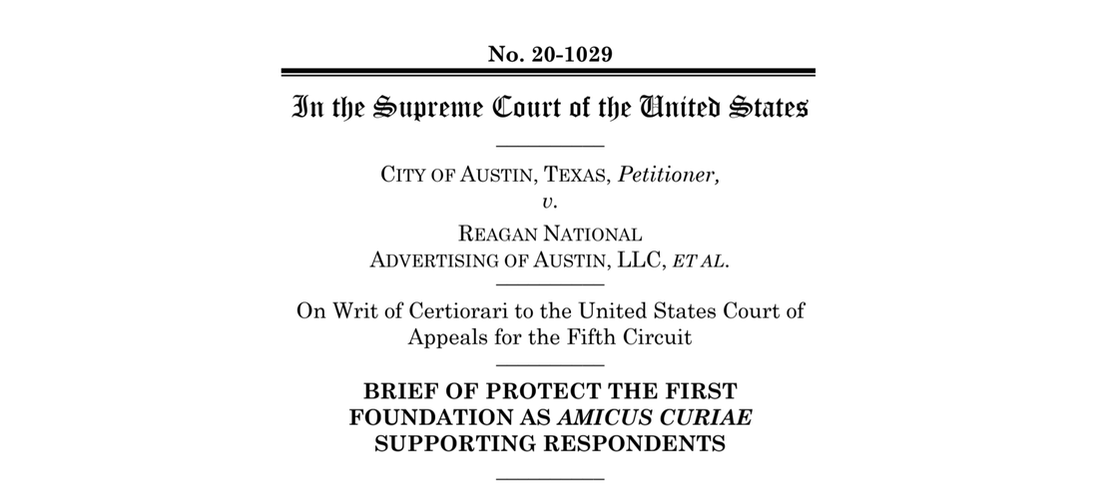
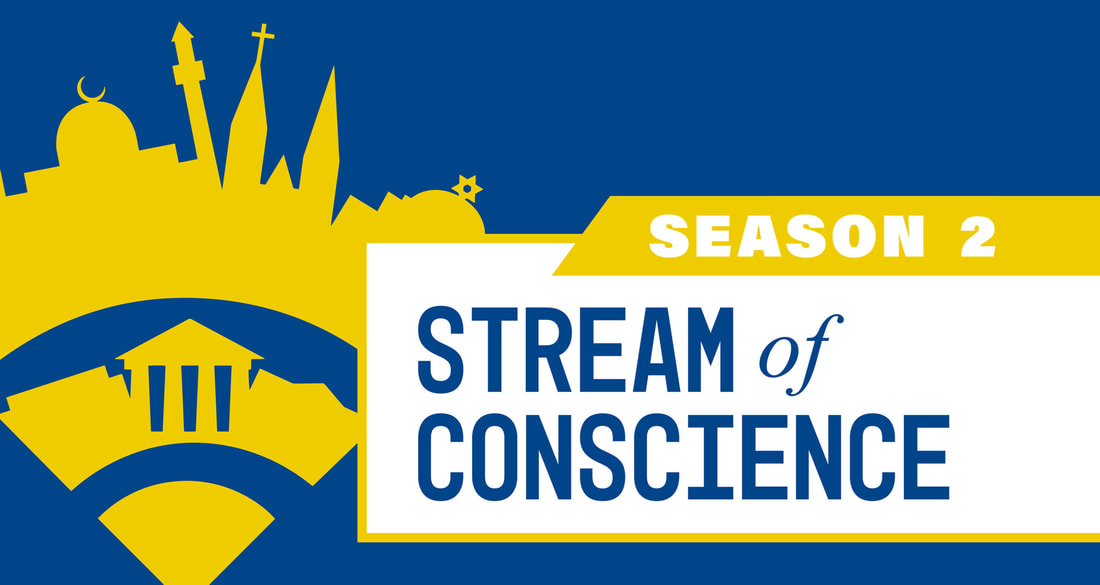
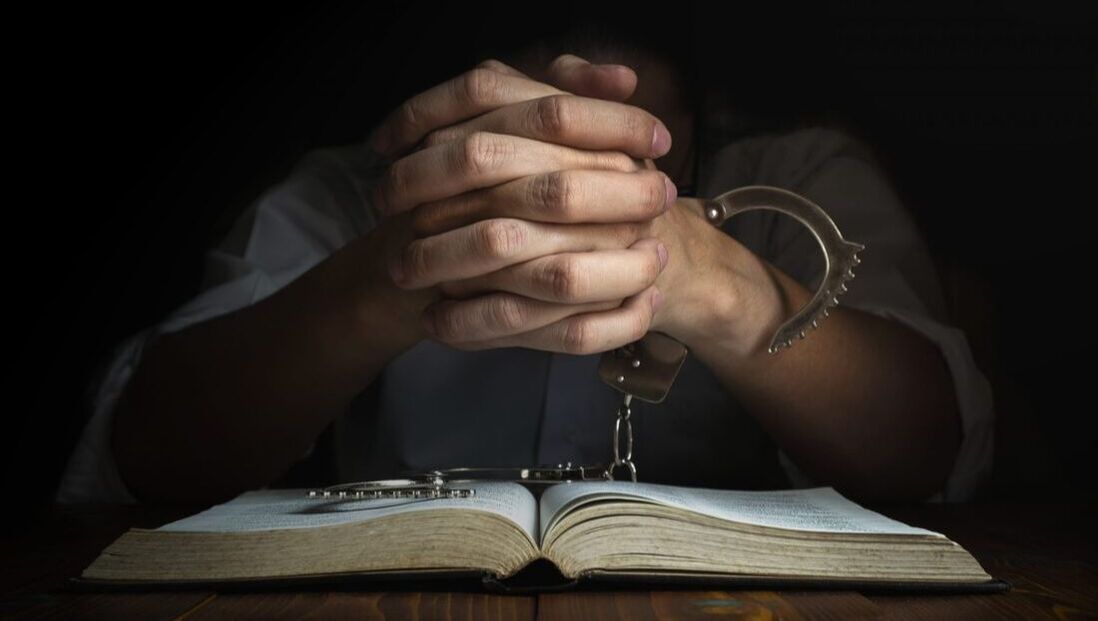
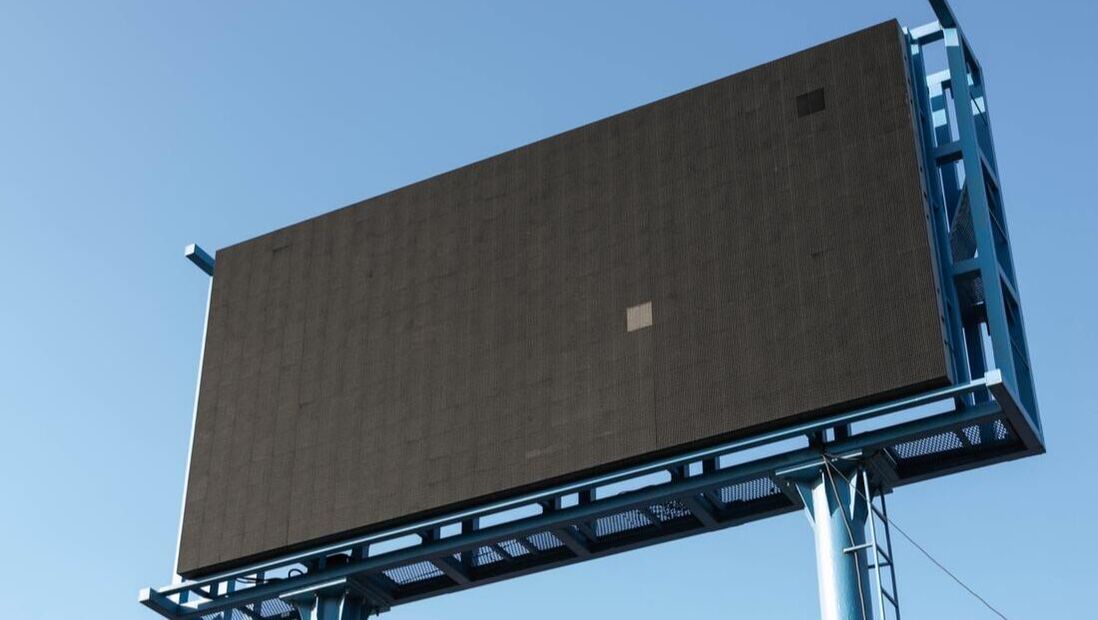
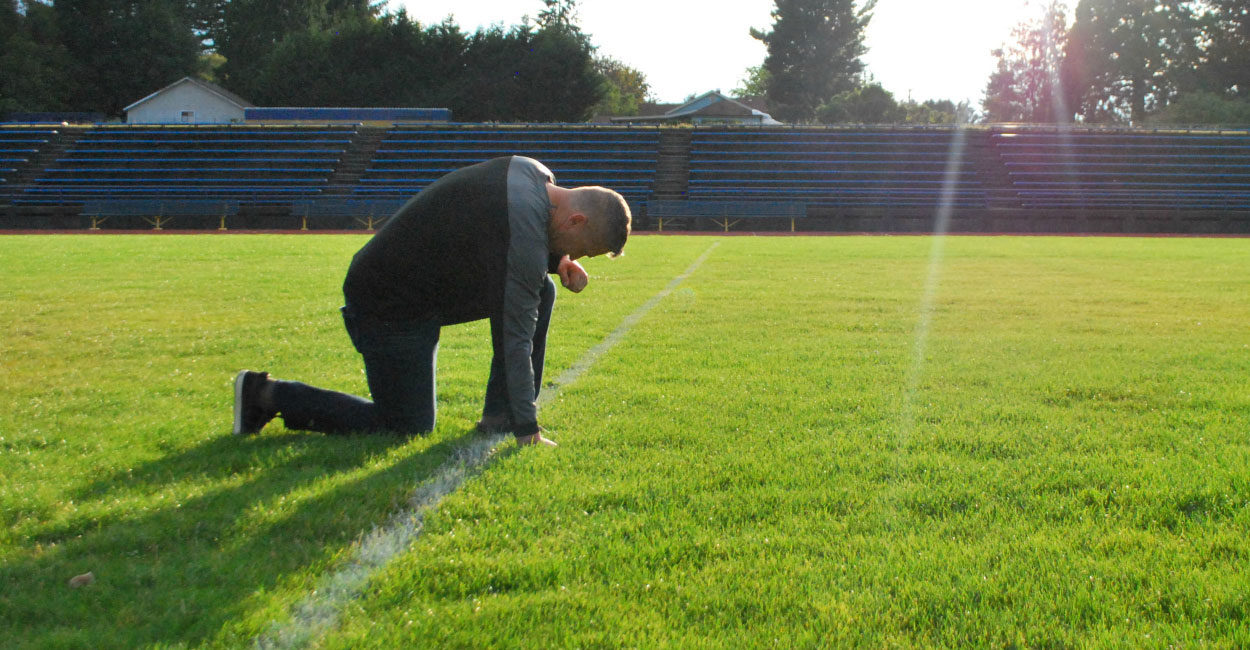
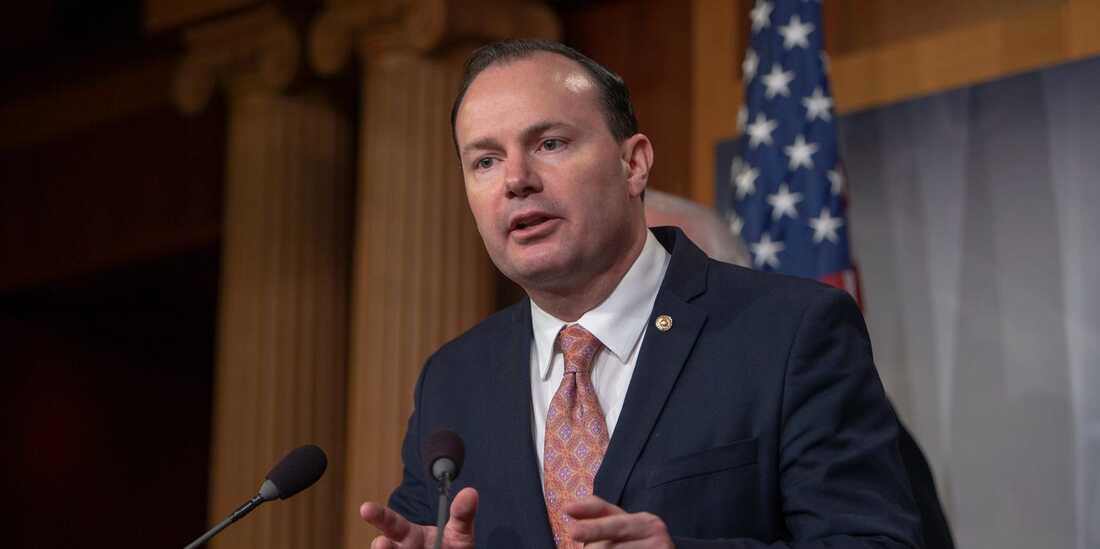
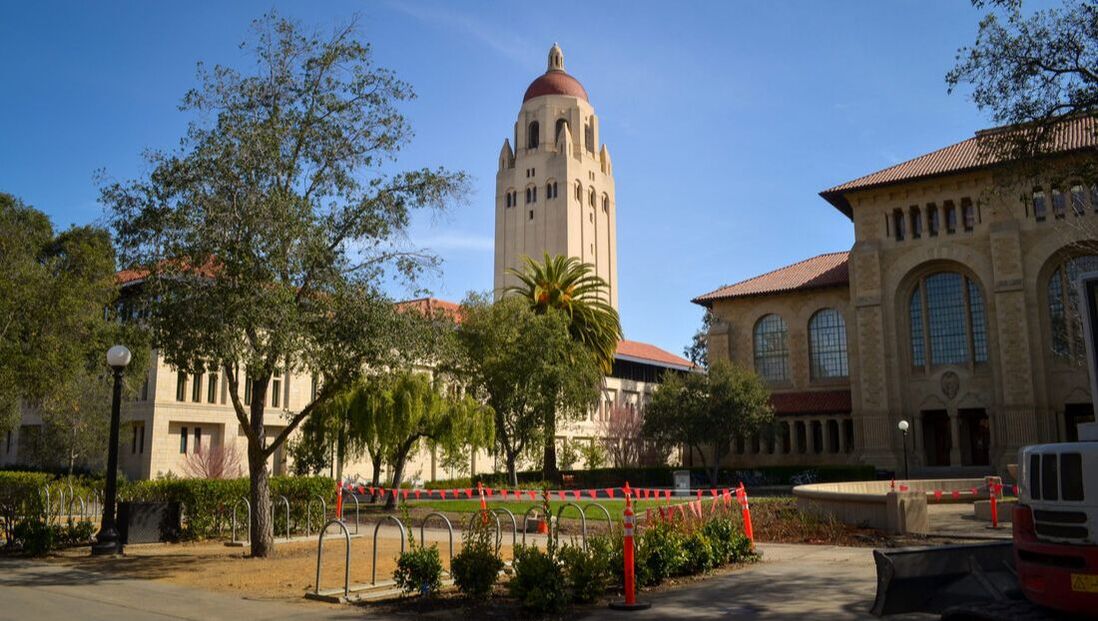
 RSS Feed
RSS Feed